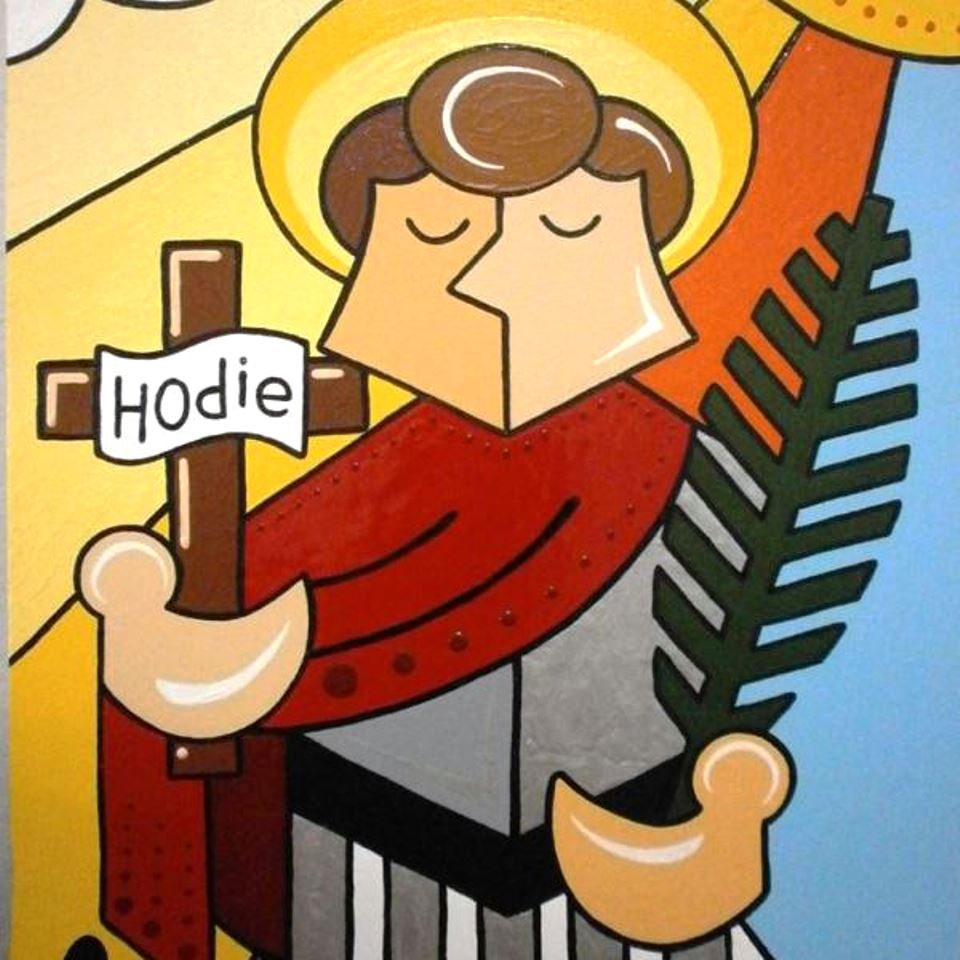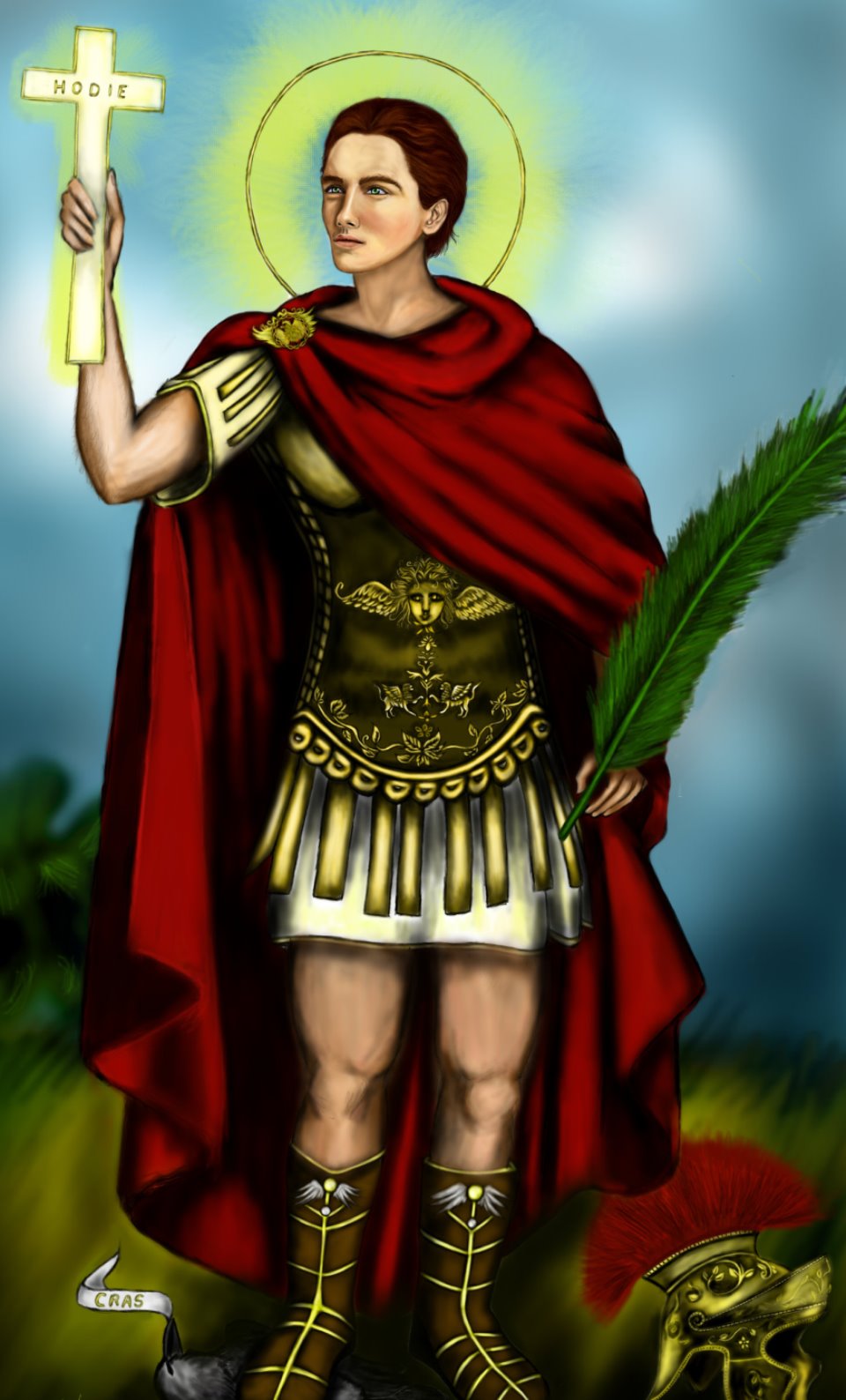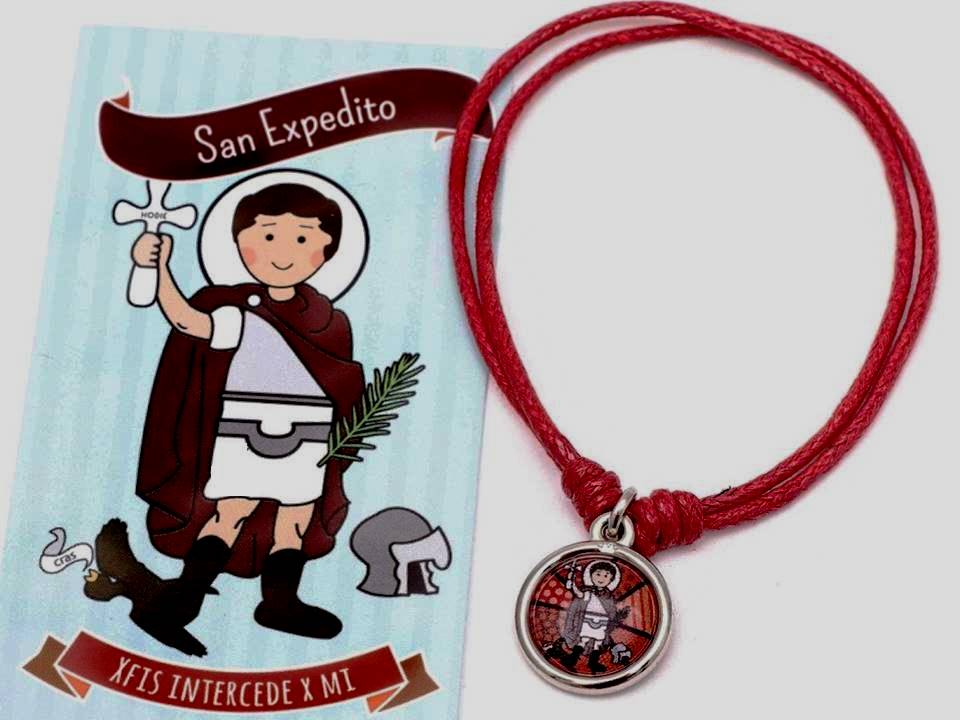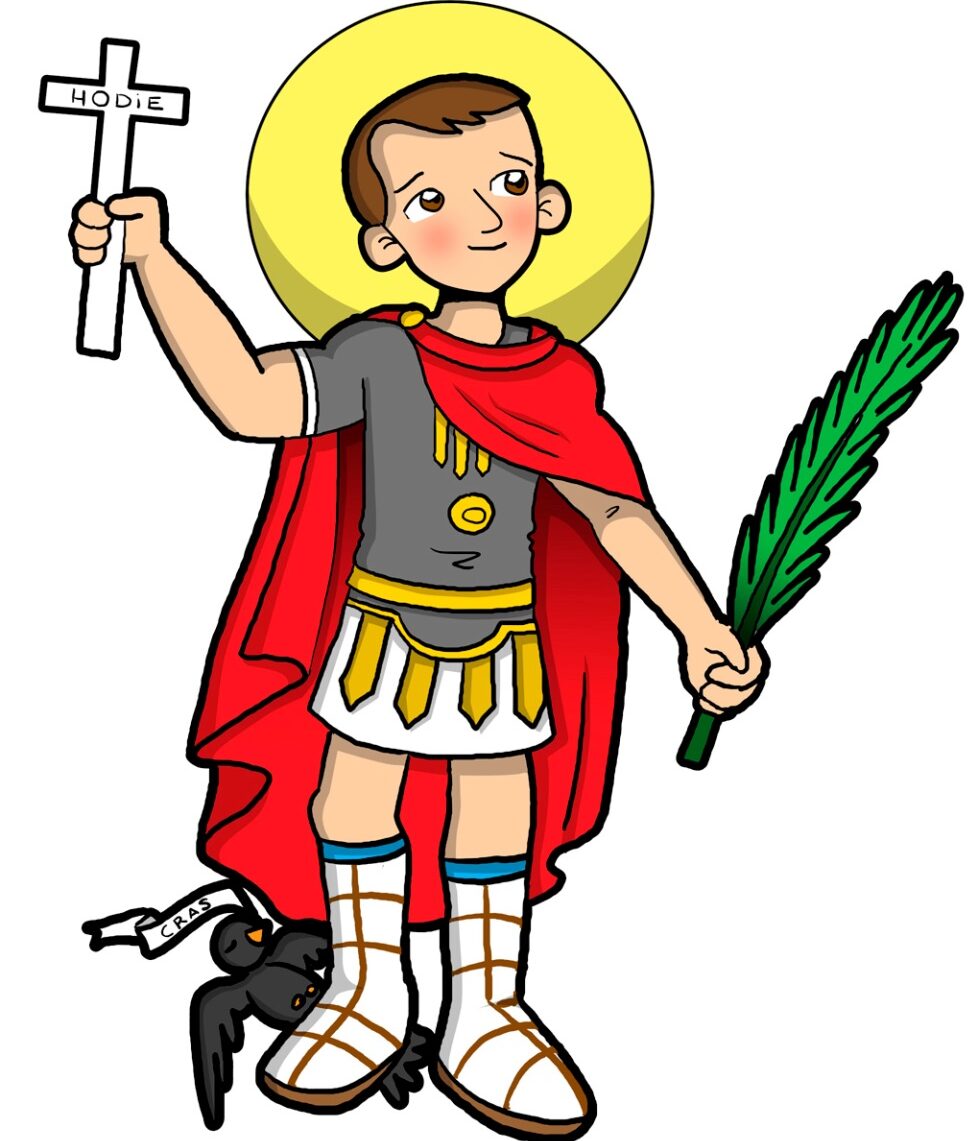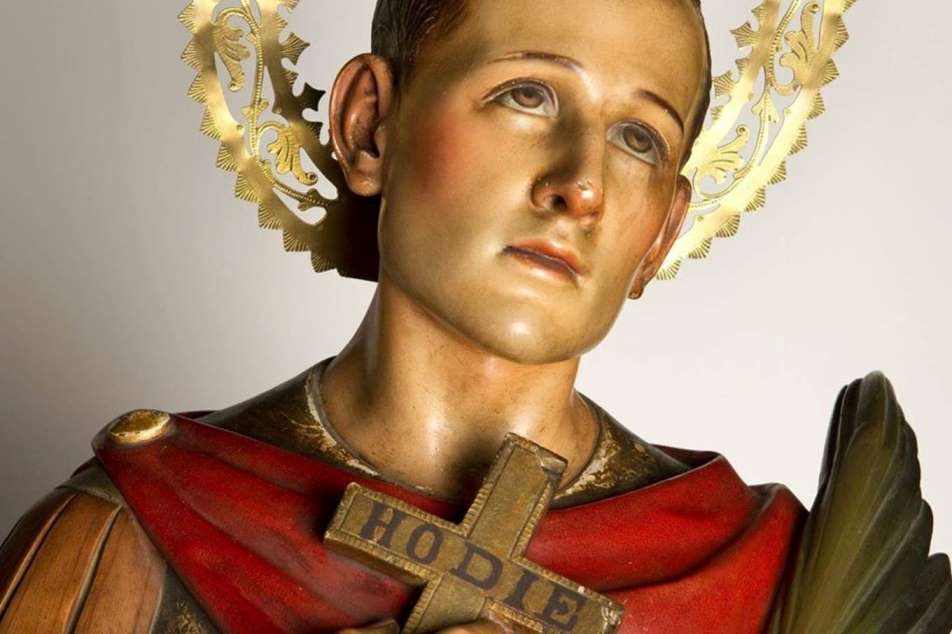Expedito, is the name given to a saint of the Catholic religion, who is said to have existed during the XNUMXrd and XNUMXth centuries, being considered a martyr. During the emperor's rule Diocletian, led the legion of the empire and the pope Urban VIII beatified him in the XNUMXth century. All this and more, is part of this article that describes the Saint Expedite's story.

History of San Expedito
The history of San expedito, locates its existence between the XNUMXrd and XNUMXth centuries, and it is precisely at the beginning of the latter that he served as a Roman soldier, reaching the rank of battalion commander, in the times when the emperor called Diocletian. If you want to review other prayer articles you can see prayer to the Holy Spirit
A crucial moment in his life was what encouraged his conversion, when he was moved by the attitude that Christians assumed when facing death, a fact that was taken by his story as a touch of grace that gave him God.
To make him doubt, the evil one sent him a raven that made a kind of constant sound, which meant "Tomorrow" in the Latin language. The intention was that Expedited will delay your conversion. But, in response, he took the raven and stepped on it as a sign that nothing would prevent his conversion.
Another aspect that stands out in the history of San expedito, is that he was considered the Saint of urgent cases, those circumstances that could not be endured or have any delay. Many of his faithful followers tend to worship and venerate him during Thanksgiving. His legacy teaches a person to seek God, without postponements, being himself the example.
He has also been baptized as the advocate of impossible causes, like other Catholic saints such as San Judas Tadeo and Santa Rita. He has been appointed as the patron saint of people who want to obtain a favor to recover a cause that can be considered lost or impossible to fulfill, having as a characteristic the immediacy with which it is needed.
In the year 1629, he was beatified, and years later, in 1671, he was canonized. Despite being considered a holy martyr, this condition was withdrawn in 2001, ceasing to have the endorsement of the Catholic Church because there is still not enough evidence that he actually existed.
his appearance
Within the history of San expedito the moment in which he appeared for the first time in the list of Italian martyrs is described, in the year 1781. In these years, he is named second patron saint in the region of achiriali, from the city of Sicilia.
Similarly, the inhabitants named it guardian of sailors and merchants, becoming quite popular at the end of that century. Inside the chapel of Las Religiosas Mínimas, an altar was built to San expedito to worship him, placing an image of him as a statue in the year 1894.
Also in Santiago de Chile, for the years of 1897, a publication was made to honor San expedito, by the archbishop of that city, named Mariano Casanova, entitled "Triduum".
But, the case of the story of St. Expedited considered exceptional, since in 1906, the pope Pius X, ordered that his name be removed from the list of the Martyrology, and left express orders that it not be incorporated into the new one for the year 2001. That is why he is not officially considered a saint of the Catholic Church despite how deeply rooted he is. is his devotion within the collective.
The veracity of the story of San Expedito has been questioned since ancient times, and even, in 1969, his cult had been withdrawn, but he was once again included as one of the four Crowned Saints. In the latest editions of his historicity, much more moderate criteria are recorded.
There is an edition translated into Spanish, where some aspects of the historicity of San Expedito are explained, whose date dates back to 1964, entitled "April 19", where reference is made to the reasons why his name cannot be included. in the list of saints. It is also for this reason that in many churches where his image appears, he has an inscription explaining that he is a saint tolerated but not approved.
Iconography
The images that exist in relation to Saint Expeditus, represent him dressed in a Roman army uniform, using a short tunic with straps behind the shoulders, and always adopting a warrior posture.
In one of his hands you can see him holding a palm leaf, with which his martyrdom is symbolized; and in the other hand, he carries a cross that has the word “hodie” written on it, which in Latin means “today”. With his left foot it is seen that he is keeping the figure of a raven underfoot, which also contains an inscription that says “cras”, whose meaning is “tomorrow” in Latin.
the patron saint
The name of San expedito, means "quick" when translated, and that is why it is considered the patron saint of urgent causes, thanks to popular devotion and the large number of faithful followers. He was appointed as the advocate of impossible causes, an attribution that he shares with Saint Jude Thaddeus y Santa Rita.
Due to his work as commander of the Roman army, another of the roles attributed to him is that of protector of the military, which over time was also extended to travellers, young people and students. His name is invoked when the person is going through legal problems that are prolonged to be resolved promptly.
Despite not being registered within the Catholic liturgy, he is a saint recognized by the faithful of said doctrine. His canonization ceremony has not yet been reviewed by the Catholic Church, and therefore, his holidays are not widely commemorated, which is scheduled every April 19.
Origin of his devotion
Part of the history of San expedito, is the beginning of his devotion and worship. They say that it all started in the city of Paris, in a convent of nuns, where by the year 1781, a box containing several unidentified relics arrived at the nuns.
These had been unearthed in the caves of Denfert-Rochereau. The box had an inscription on the sender that said: "Spedito", which means "express mail", probably so that the shipment was made quickly. However, the nuns confused this case, assuming that the contents of the box belonged to a certain "Spedito".
Within the Roman Martyrology, the record of a holy martyr named "Expeditus" appeared. On Turkey, were crowned as holy martyrs of Hermagoras: rufous; Aristonic; Dropped; Galata; and Expedited, the same day all. Other sentences are San Judas Tadeo for business
The nuns conjectured that it was the martyr who appeared in the Martyrology, and began to pray asking for his intercession. The veneration for the saint began to spread, spreading throughout France, when they saw that prayers were answered quickly.
In the fourth century a date of commemoration was awarded to him, to create greater credibility, coming to be compared with the attributes of Santa Filomena and assuring that his death was in the year 303.
Hagiography or Santoral
At the end of the XNUMXth century, it was when a history of Santo Expedito began to be created, given that he was an unknown saint. The features to highlight was his training as a military man of Roman origin, having a feat within his performance during a battle, where he was awarded the nickname "Fulminating".
The legion he commanded was made up mostly of Christian soldiers, and all together, they had the mission of protecting the eastern borders of the Roman territory that had been invaded and was constantly attacked by the Huns. Expedited He led a dissipated life before his becoming a Christian.
When he had decided to convert to Christianity, a black crow appeared to him, which for centuries has represented the evil one. His goal was to persuade him not to convert, but in response Expedited he crushed it with his left foot.
It has been represented in an image where Saint Expedited dressed as a Roman soldier and at his side, is the crow stepped on with the foot, and on its beak is written the inscription that reads “cras”, which in Latin means “tomorrow”.
When he became a Christian, he began to preach the word among the members of his battalion, but this was not to the Emperor's liking. Diocletian, who began to hate him to such an extent that he had him flogged until he bled, and then beheaded with a sword, on April 19, which is his Day.
Saint Expedite's name
Inside the story of St. Expedited The origin of his name, which has military connotations, is also told. The name "Expedito", when translated into Spanish, is used as an adjective. It is derived from the Latin "expeditus", which serves to refer to the fact of having the freedom to act promptly.
It is said that in ancient Rome, soldiers went into combat carrying only their weapons and without any other load, which was called "expediti or in expeditionem”. But, when, on the contrary, they carried all their impedimenta with them, which consisted of: a sleeping bag, utensils and personal objects, tools and provisions, among others, it was then called "impediti".
The name of "expeditiously” was also used to refer to the formation of the battalion, with which they acted as light infantry, contemplating great speed in their movements. It is said that this last premise is where the name of "Saint Expedited”, since the unit that he commanded in his career as a soldier, was conducted according to these parameters.
Another version of the story of San Expedito
There is another version of the story of St. Expedited, which was adapted by Catholic tradition, and where it is said that he was a military officer who served as regent of the Legion XII Fulminata during the imperial era in Rome.
The legion was in the territory of Armenia, and their mission was to defend the people from those who wanted to attack the Roman Empire. Their fight had been under their command for many years, and there came a time when they ran out of water and food, in a territory that was under the complete control of the enemy.
And so, forced by circumstances and without any energy, they went into combat. It was then that Saint Expedited He began to motivate them through the word, but it did not give results, since the troop felt that nothing could be done now. At that time, they chose to act in the face of adversity just like the Roman soldiers who were Christians did, and the way in which they faced death.
Suddenly, the soldiers raised their arms to the sky, everyone being surprised, including Expedited, with the intention of requesting God his help, imploring him to perform a miracle. The entire battalion began begging God in the middle of the battlefield, an act that was unexpected by the enemy side.
The response was immediate and suddenly the entire sky darkened and a tremendous gale of wind and water began to rise, covering the entire battlefield. This was very helpful for the combatants of the legion to emerge victorious from said contest. Many of the soldiers converted to the Christian faith after this event.
However, Expedited He still did not understand what had happened, although he already felt the calls of God in his heart. But he had to face another challenge, since his position in the army was not related to his conversion to Christianity and would even mean arousing the wrath of the emperor.
And indeed, when the emperor learned of the occurrence of those events, he branded the action as a military revolt. Finally, Saint Expeditus overcame his doubts and affirmed that he would turn his life around and be a Christian. At that moment, he manifested the Spirit of evil transformed in the form of a raven, who shouted a sound at him "Crash, craw, craw” several times, a term that means “tomorrow”.
His intention was to prevent conversion according to the story of St. Expedited, but he reacted by crushing him with his foot, and answering: “Hodie, hodie, hodie”, which means “today”. Expedito once converted, he began to protect Christians who were taken to Roman circuses to be eaten by lions.
This behavior was intolerable on the part of the emperor, who could not accept that the person who led his battalion now openly defied his laws, and that he was also another Christian. These acts caused him to be detained along with other comrades-in-arms, who were also Christians, for questioning.
San Expedited He became a holy martyr on April 19, 303, when, by orders of the emperor, he was sentenced to flogging. They say they gave him and the other detainees a chance to repent and renounce their faith, but by refusing, they were beheaded.
Prayer to Saint Expedite
Although the story of St. Expedited is therefore still in doubt and that this earned him his exclusion from the list of official saints of the Catholic Church, he has a large number of faithful followers who consider him the saint of impossible and urgent causes, for which he has several prayers that are prayed to him to worship him, ask him for favors or simply in gratitude.
Saint Expeditus!, Lord of urgent causes, noble and just lawyer, I ask you to intercede before Jesus Christ our Lord, to help me in these moments of torment and despair.
Holy and noble warrior, patron of the afflicted, saint of the desperate, only you can successfully cope with urgent causes. I ask you today to help me and protect me, giving me the courage and strength I need right now but also calm and serenity to take the best actions.
Heed this call that I make to you with all faith (The favor is requested). Help me, Santo Expedito, to be able to overcome such difficult times of bitter drinks. Protect me against those who try to harm me, both me and my family.
Take care of this favor urgently, and give back to my soul the tranquility and peace that it is needing. Oh Saint Expeditus!, I will be forever grateful if you grant me the request, if necessary the rest of my life, I will spread your name with devotion and Faith. Amen!
Note: It closes with an Our Father, a Hail Mary and a Creed as a complement to the prayer.
Churches in the world
There are several churches around the world where the image of San Expedito is venerated, being among the countries: Germany, Argentina, Austria; Brazil, Spain, United States; Philippines, France; Mexico; Nicaragua; Uruguay; Venezuela; and more. If you liked this article, we invite you to see Novena to Saint Expeditus
